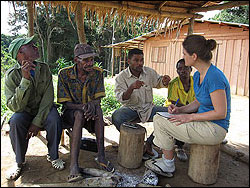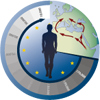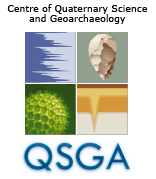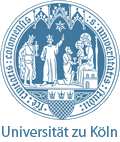The Baka are tropical foragers living in the rainforests of central Africa. In the course of the last 150 years, the Baka have been migrating from eastern Congo into southern Cameroon and northern Gabon; they are still among the most highly mobile hunter-gatherer groups worldwide. Large parts of the population have also become sedentary and settled in villages which in appearance cannot be distinguished from those of their neighbours.
The Baka of today must be seen as African foragers in social transition, oscillating between a deep relationship with the forest, and the will to become an accepted part of the larger societies and the nations in which they live. This means they are leaving behind the depths of the forest and some of their established ways of life.
Doerte Weig, as the active ethnographer in our project, is working with the Baka population of north-eastern Gabon, specifically in the two Baka villages, Adjab and Pba nà pòte, located along the Ivindo river, close to the Congolese border. Her field work activities have so far concentrated on the collection of census data and gathering information relating to migratory history over the last 50 years. One of the advantages of ethnographic research is to be able to observe and question human agents at the very moment of their decision-making and actions. Currently, Doerte is focusing on what motivates the community or individual Baka to move from one location to the next in today’s context.
Interviews take place in a mix of different languages: Baka, French, and Bakwele, the language spoken by a neighbouring group. As the Baka enjoy entertainment, there are always several adults and children involved in an interview, in addition to the actual person being asked the “serious questions”. So things are never serious for long, but get done the “Baka way”, with much palaver and laughter.
 Questioning of Baka people. Photo: Sam Nziengui Kassa |















